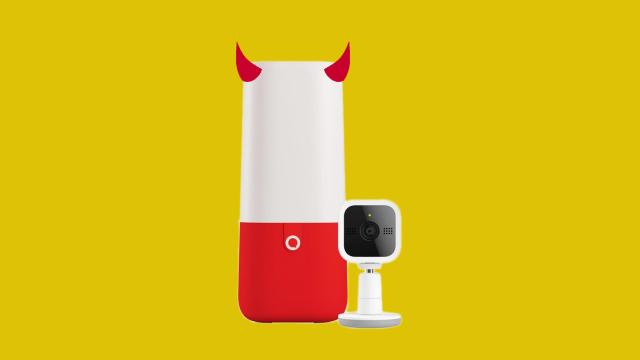Mattel is cancelling Aristotle, a device described as “Alexa for kids”, after facing criticism from lawmakers and parents’ groups. In a statement, Mattel said Aristotle did not “fully align with Mattel’s new technology strategy” and would not bring the device to market “as part of an ongoing effort to deliver the best possible connected product experience to the consumer”.
Image: Mattel / Gizmodo
First revealed at the Consumer Electronics Show in January, Aristotle was a smart speaker designed for a child’s room, pre-programmed with a wide range of interactions. Among other features, the device was equipped with a camera that could stream live video to parents’ phones, use object recognition to scan children’s rooms for other Mattel toys, and even keep track of feedings and nappy changes, offering to order new nappies from partnered retailers when it noticed you were running low.
In an online petition, the Campaign for a Commercial-Free Childhood opposed the sale of Aristotle as “a robot designed to sell products and build brand loyalty”. Surprisingly, that wasn’t too far off from how its maker described the device. Robb Fujioka, Mattel’s chief products officer, said the company wanted to create “a technology platform that evolves and grows with your child”, admitting he hoped children would form “emotional ties”.
Mattel initially baulked when it first faced accusations of attempting to tacitly datamine playpens, reiterating the device would be secured with 256-bit encryption, with data stored locally unless it had parents’ express permission to upload to the cloud.
Last week, however, Mattel faced more serious scrutiny in the form of a letter from Senator Ed Markey and Representative Joe Barton, members of the Congressional Privacy Caucus. In it, the lawmakers said they welcomed “the innovative and responsible use of artificial intelligence and speech recognition”, but asked Mattel to answer a series of questions including “Will Aristotle always be ‘on’, meaning the device will collect information regardless of whether the child directly engages with it?” and “Does Mattel plan to share or sell information to third parties?”
Unfortunately, children’s devices are often the targets of massive hacks. In 2015, toymaker Vtech was hacked by attackers who stole the names, emails, passwords and home addresses of millions of parents and children, along with hundreds of thousands of pictures of kids. The same thing happened to over 800,000 CloudPets users earlier this year, with hackers apparently ransoming the stolen data and photos.
Mattel presumably saw a PR trainwreck oncoming and decided to quit while it was ahead. Hopefully more toymakers hoping to turn children into datapoints before fully considering the privacy and security implications will follow suit.
